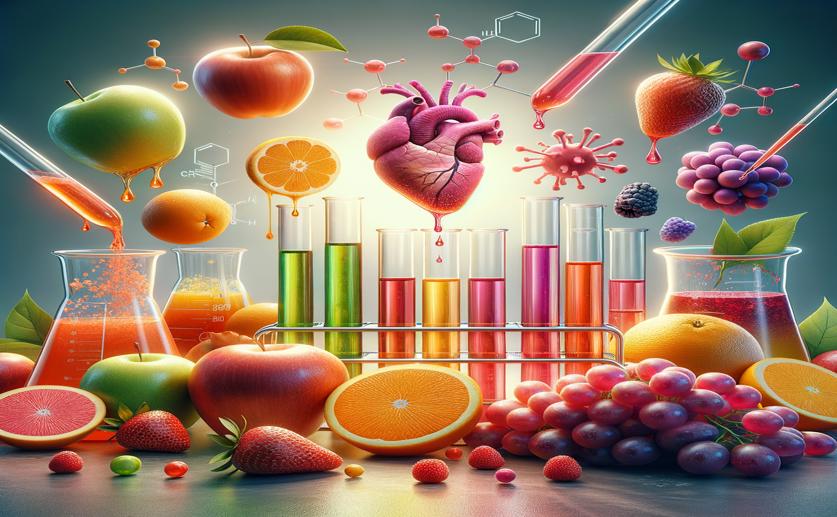
How Different Fruit Extracts Affect Blood Pressure and Inflammation Enzymes
Jim Crocker
25th August, 2024

Image Source: Natural Science News, 2024
Key Findings
- Researchers from Zhejiang Gongshang University found that fresh kiwifruit extracts can significantly lower blood pressure by inhibiting ACE activity by 47.71%
- The study also discovered that nonpolar substances in ethanol extracts of grapes inhibit ACE activity, while enzymatic hydrolysates of red grapes promote KLK activity
- These findings suggest that different components within the same fruit can have opposing effects on blood pressure, highlighting the complexity of natural foods in managing hypertension
References
Main Study
1) Effect of Various Fruit Extracts on Angiotensin I-Converting Enzyme (ACE) and Kallikrein (KLK) Activities.
Published 24th August, 2024
https://doi.org/10.1007/s11130-024-01223-5
Related Studies
2) Identification and Antihypertension Study of Novel Angiotensin I-Converting Enzyme Inhibitory Peptides from the Skirt of Chlamys farreri Fermented with Bacillus natto.
3) Purification and identification of novel ACE inhibitory and ACE2 upregulating peptides from spent hen muscle proteins.



 12th July, 2024 | Jenn Hoskins
12th July, 2024 | Jenn Hoskins